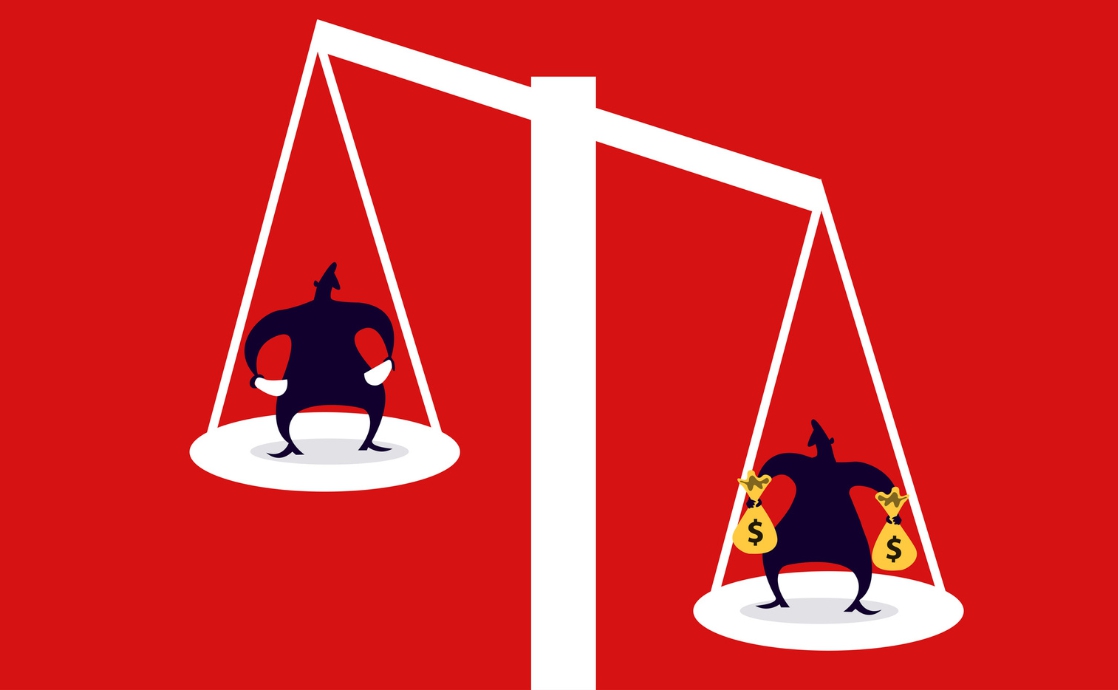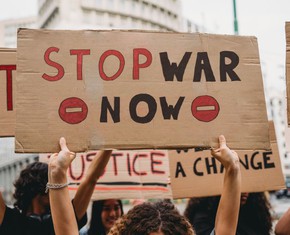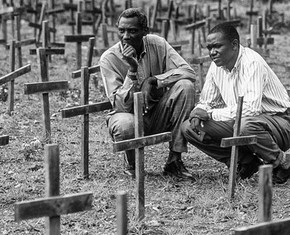The views expressed in our content reflect individual perspectives and do not represent the authoritative views of the Baha'i Faith.
For many years, I’ve tried to emphasize the need for humanity and morality in our economic systems – because I believe that lack of morality is the root cause of misery in the lives of billions of people.
Those people struggle daily to survive, in the face of immoral economic injustice.
So in this brief essay, I will try to define economics as it is now practiced in most places, point out its problems, and suggest a remedy.
The complex subject of economics is hard to define, so here’s an easy way to understand it by going to the original root of the term: economics is derived from the Greek word “Oikonomia,” which refers to managing a household or family. This means, obviously, that an economic system is supposed to help us manage our households – not only in the individual sense, but in the collective one, as well.
RELATED: My Brother’s Keeper: 9 Economic Tips for Uniting Humanity
Every economic system, then, should exist to help sustain the welfare of all the members of the human family, so at a minimum they can live comfortable lives and share their resources and earnings. That way, no family member lives in poverty or privation, and humanity as a whole can live a stable and productive existence. Historically, when great disparities in wealth exist, it destablizes entire societies, provoking war and revolution – so a good economic system doesn’t only ensure prosperity, it also keeps the peace. The Baha’i teachings repeatedly call out this basic fact, as Abdu’l-Baha did in this speech he gave in Canada in 1912:
Although the body politic is one family, yet, because of lack of harmonious relations some members are comfortable and some in direst misery; some members are satisfied and some are hungry; some members are clothed in most costly garments and some families are in need of food and shelter. Why? Because this family lacks the necessary reciprocity and symmetry. This household is not well arranged. This household is not living under a perfect law. All the laws which are legislated do not ensure happiness. They do not provide comfort. Therefore, a law must be given to this family by means of which all the members of this family will enjoy equal well-being and happiness.
Is it possible for one member of a family to be subjected to the utmost misery and to abject poverty and for the rest of the family to be comfortable? It is impossible unless those members of the family be senseless, atrophied, inhospitable, unkind. Then they would say, “Though these members do belong to our family, let them alone. Let us look after ourselves. Let them die. So long as I am comfortable, I am honored, I am happy – this, my brother – let him die. If he be in misery, let him remain in misery, so long as I am comfortable. If he is hungry, let him remain so; I am satisfied. If he is without clothes, so long as I am clothed, let him remain as he is. If he is shelterless, homeless, so long as I have a home, let him remain in the wilderness.”
Such utter indifference in the human family is due to lack of control, to lack of a working law, to lack of kindness in its midst. If kindness had been shown to the members of this family, surely all the members thereof would have enjoyed comfort and happiness.
Sadly, as most of us know, this lack of reciprocal kindness means our current economic systems do not work well – in the human family, one in ten people live on less than $2 a day. Globally, one-third of urban dwellers live in slums. What is the problem? Where did the system go wrong?
Perhaps the problem was exacerbated when Adam Smith, who observed economic activities in the marketplace as they relate to people’s behavior, made some assumptions and came up with a system. He assumed that everyone wants to maximize their satisfaction or profits, with self-interest as the major motivation. He also said the market could correct itself, so no governmental intervention is necessary.
This made sense to many, but Mr. Smith’s system left little room for morality or human virtues.
However, Adam Smith was a moral person, and many years before he wrote his book The Wealth of the Nations he wrote The Theory of Moral Sentiments. In that earlier book, Smith warned that there is an inherent danger in wealth that can corrupt human society. His warning was ignored.
In that sense, lack of spirituality contributes directly to the root cause of our economic problems, because we have not included a moral component that would guide our conscience and actions.
In today’s economic reality, money has become like a religion; therefore, we follow the practice of everyone in it for themselves, making as much money as they want by any means. Nobody asks if someone is a good person, or evinces praiseworthy actions. Many consider someone who is poor as a failure, because they believe we have been created to make money and get rich.
It is easy to criticize the system itself, but that does not solve the problem.
Instead, we can all have a hand in reforming the system when we start injecting virtues gradually and slowly into it, so that it revives itself to become a system that is sensitive to the needs of humanity, sensitive to the poor people of the world, and responsive to the spiritual aspiration of human beings.
Every day we can practice virtues like truthfulness, kindness, generosity, and honesty in our economic activities. These spiritual virtues, common in all religions, create an environment of generosity, caring, and cooperation – all necessary for the poor to prosper. We can do the same by injecting human values into the political, educational, and other systems, because all systems suffer from the same afflictions.
As Baha’u’llah advised us in relation to those without means: “O Ye Rich Ones on Earth! The poor in your midst are My trust; guard ye My trust, and be not intent only on your own ease.”
We must take action – because our inaction is, in part, responsible for the suffering of the poor. If we don’t change the system, millions of people will continue to live in misery every day, deprived of God’s purpose for them because they are too busy finding a few dollars to survive.
We need “Humanomics” – economics with human elements – because we are humans, and we all aspire to have those qualities and values. You may ask: how we can do this? What is my role? It is impossible to change a system, so why should I even try? All systems are subject to change, so, in countless small ways and some large ones, too, we all can make a difference.
Our actions will lay a solid spiritual foundation for the emerging future global economy – a balanced, equitable moral system with no room for the greed and extreme wealth that inevitably accompanies poverty and economic injustice. In that regard we all need to ask ourselves a question, the answer to which sets the direction of the path for the rest of our lives. The question is: How much is enough? If you answer this question, it will lead you to the virtue of contentment.
In your answer to that question, you’ll create a yardstick that measures your material and spiritual achievements. That yardstick, which considers spirituality as well as material things, changes our perspective. At present, sadly, our measurements are incredibly lopsided.
RELATED: What Would a Spiritual Economy Look Like?
That personalized economic yardstick involves an important measurement: simple living. Throughout history, there have been a great many people who were symbols of simplicity. The Baha’is are blessed to follow the example of Abdu’l-Baha, who lived a simple life, avoided materialism, and shared whatever he had with others. Simplicity also makes financial sense, which can relieve us of so many headaches.
The pandemic highlighted the poor’s plight, widening the gap even more between the rich and the poor, and now the war in Europe has dragged millions more into poverty and starvation. The need for action is dire and urgent. The Baha’i teachings urge every human being not to close our eyes to the sufferings of members of our human family. Baha’u’llah wrote this advice to a king:
Fear the sighs of the poor and of the upright in heart who, at every break of day, bewail their plight … They, verily, are thy treasures on earth. It behoveth thee, therefore, to safeguard thy treasures from the assaults of them who wish to rob thee. Inquire into their affairs, and ascertain, every year, nay every month, their condition, and be not of them that are careless of their duty.
By introducing spiritual virtues into our economic life, we begin to revolutionize the economic system within, and change it to a humane system that meets the material needs and spiritual aspirations that God meant for everybody.
You May Also Like
Comments

















Another Hidden Word relating to the subject:
"O CHILDREN OF MEN!
Know ye not why We created you all from the same dust? That no one should exalt himself over the other. Ponder at all times in your hearts how ye were created. Since We have created you all from one same substance it is incumbent on you to be even as one soul, to walk with the same feet, eat with the same mouth and dwell in the same land, that from your ...inmost being, by your deeds and actions, the signs of oneness and the essence of detachment may be made manifest. Such is My counsel to you, O concourse of light!..."
(HW 68 A)